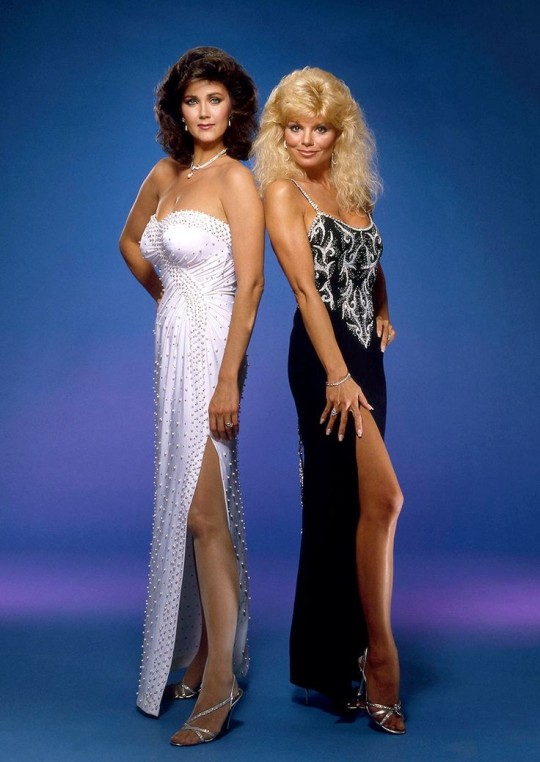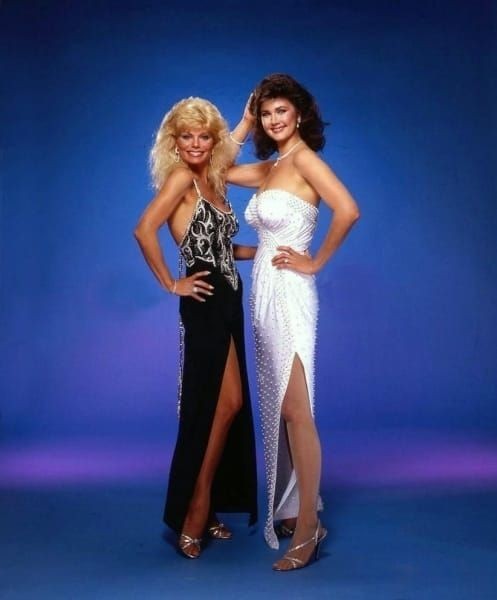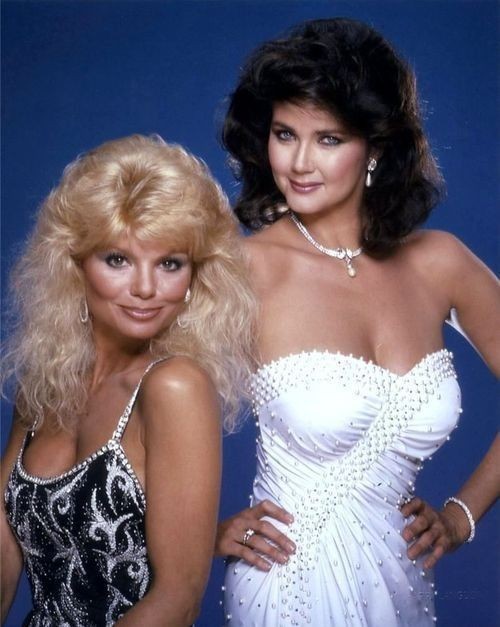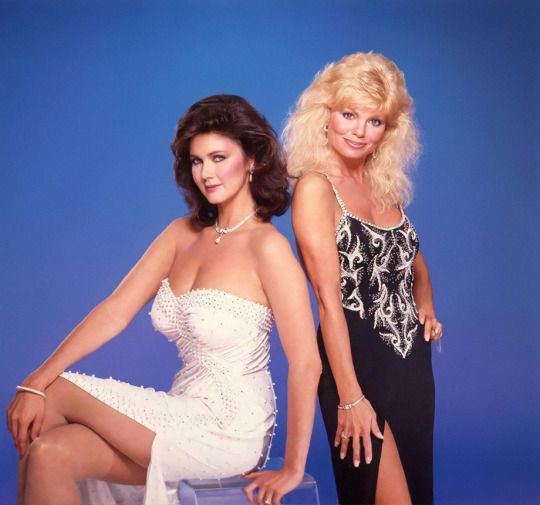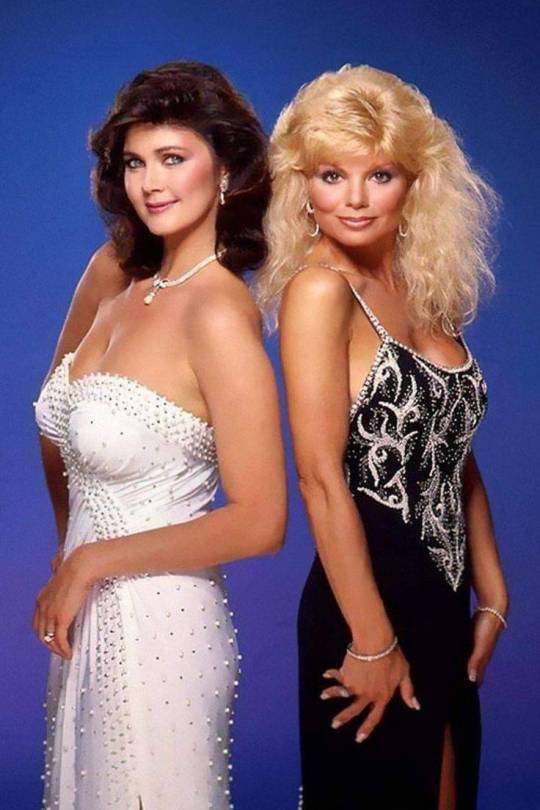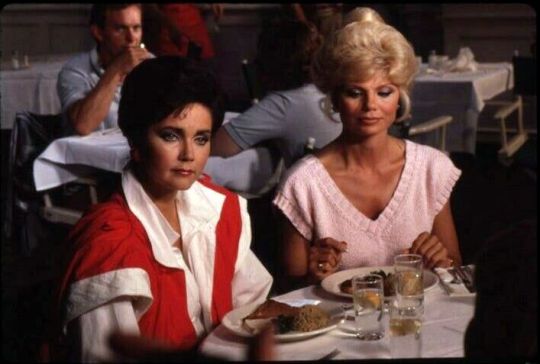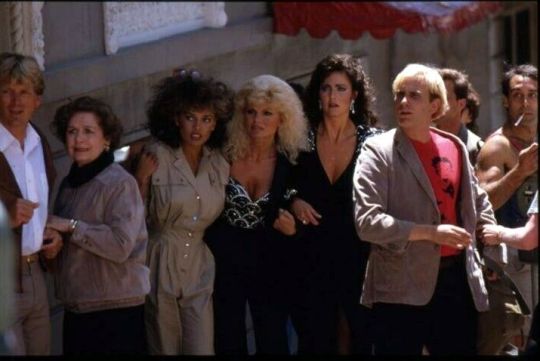#Linda Anderson
Text

alsojournal.com make-up linda anderson
12 notes
·
View notes
Text
from ‘imagining the worst: stephen king and the representation of women’
“OH DEAR JESUS IT IS FEMALE”: Monster as Mother/Mother as Monster in Stephen King’s It
Linda Anderson
Stephen King has been quoted as saying that in It he was attempting to create a monster that would be a synthesis of all of the great monsters of American popular culture: “[I]t’s like a monster rally—everything is in this book, every monster you could think of’ (Winter, 184). King scholars differ as to the literary value of this “monster rally”: Michael Collings declares It a “masterpiece”
(Phenomenon, 13), and Burton Hatlen likes it “a lot,” although finding it “imperfect in certain ways” (146); Don Herron’s assessment is scathing (216— 17). Clearly, what King aimed to create in It—and in It—was what Georgie Denbrough imagines (rather exceptionally for a six-year-old) as “the apotheosis of all monsters” (It, 7). Whether King succeeded in his attempt must ultimately depend on each reader’s taste, but it is certainly the case that King’s monster, even if not exalted to divine rank, is unusual.
Instead of appearing in a single, gruesome, terrifying form, It manifests Itself as many different avatars. Its incarnations include such classic monsters as the Mummy, the Creature from the Black Lagoon, Dracula, a teenaged werewolf, and Frankenstein’s monster. Less traditionally, It appears as a leprous hobo, Paul Bunyan, and Buddy Holly. It can possess the bodies of living people, as it does that of Beverly Marsh’s father, and It can take the form of dead acquaintances of the other characters, such as Belch Huggins and Victor Criss.
Its most frequent avatar, however, is Pennywise the Dancing Clown. One common element of nearly all of Its manifestations is that they are explicitly defined as male.' Though King as narrator is careful to refer to It Itself as gender-neutral, his characters sometimes refer to the avatars as male. On more than one occasion, It even defines Itself as male, saying that Its name is Bob
Gray, or even Mr. Bob Gray. Ultimately, however, and this is presented as the ultimate of Its horrors, It is discovered to be female and pregnant—not It at all, but She and Mother.
Eventually, of course, It is defeated, first and temporarily in 1958 by children, and finally in 1985 by adults (themselves unable to have children) who are able to “become children” again. The principal battle of the book is between a group of six boys/men (and one token girl/woman) and a (literally) devouring mother-figure who is made more monstrous because, as the book makes clear,
She does not kill merely for food or to support Her young: Her creative and bleakly humorous use of children’s popular culture suggests that She enjoys terrorizing, mutilating, killing, and devouring children, primarily male children, whose only rational response is to destroy Her. The female character who is part of the victorious group (known as “the Losers”) is ostensibly established as a virtuous mother-figure, in contrast not only to It but also to the novel’s real human mothers. However, her part in the defeat of the monster is problematic.
Only the group’s boy-men, with advice and limited help from their fathers, father-figures, and other male characters, can defeat the monstrous mother.
Despite all of the apparent male violence—human and inhuman—throughout the novel, It is ultimately about resolving pre-Oedipal conflict, the attempt to erase the “primary experience” of the link between mother and child and to “release the hold of the maternal entity” through male language (Irigaray, 14; Kristeva, 13).
Whether or not readers agree that the revelation of It as She and Mother constitutes the ultimate horror, those familiar with King’s other novels and tories should not be surprised at encountering a monstrous mother because such figures are common enough in his works to constitute a motif.* Even readers not familiar with King’s other works should not be too surprised at the revelation of
It as the monstrous mother because the idea of mothers as monstrous is established well before the book’s climax. Human mothers in It are not entirely unsympathetic: Many of them are poor, often working in hard, sometimes hazardous, dead-end jobs, and some of them are struggling to raise children by themselves (among the Losers, only Beverly has a father who is a dominant figure). Nevertheless, It is largely written from a child’s viewpoint, and as mothers these women are seldom more than ineffectual at best and often fail to rise even to that depressed and depressing level.
The best mother in the novel is probably Jessica Hanlon, but even she is represented as somewhat repressive, particularly when compared to Mike’s father, Will.* Jessica is the parent who keeps Mike at his chores, while Will is the one who tells her a boy needs time to play. Jessica is the parent who enforces discipline, to such an extent that even Will avoids her anger. Jessica tries to keep Will from giving Mike information that he needs to combat the monster. Jessica is somewhat humorless: When Mike and his father were having “great fun” watching Rodan on TV, she “popped her head in and told them to hush up before they gave her a headache with the noise” (275). Toward the end of the book, It reveals that the reason Mike sees It as a monstrous bird is that the infant Mike was attacked in his cradle by a crow when his mother left him in the yard while she was hanging out laundry. Although Jessica Hanlon is a loving mother, she is clearly represented as stricter and less fun than her husband, although still unable to protect her son, or even, at times, to comprehend the dangers of the world he lives in.
Richie Tozier’s is the only other family in the book that is other than gravely dysfunctional. (King offers almost no information about Stan Uris’s family.) Maggie Tozier, however, again in contrast to her husband, is represented as being no fun. She reproves her husband for “vulgarity,” refers to ichie’s beloved horror movies as “awful junk,” and “like Bill Denbrough’s mother” is “death on rock and roll” and is “traumatized” by seeing Jerry Lee Lewis on TV.° She becomes “furious” with Richie when his glasses are broken by a bully (662). She is described as being likely to “have a bird” if she finds out that Richie has been riding double on Bill’s bike, but she is completely unaware that her son is plotting with Bill to kill It and is shown as cheerfully pouring out iced tea for the boys as they plot their dangerous mission (363). Shortly after this episode, we hear her thoughts about the boys:
I don’t understand either of them, she thought. Where they go, what they do, what they want... or what will become of them. Sometimes, oh sometimes their eyes are wild, and sometimes I’m afraid for them and sometimes I’m afraid of them... . A pretty little girl she could have understood. (King’s ellipses, 366)
Ben Hanscom’s mother is affectionate and supportive. She is a single mother and works hard to raise her son, although even that virtue causes Ben anguish, as he worries about what her job in a textile mill is doing to her health. She is “a hard woman,” who usually insists on having her own way, and Ben is rarely capable of standing up to her (185-86). She knows little about her son’s life, particularly about his friendlessness early in the book, and he feels unable to talk to her about this or his other worries. Although Ben loves her, he doesn’t trust her. When he is pursued by It, he gets home to find that his mother, exhausted from work, “had not, in truth, much missed him” (215), and after being knifed by the murderous Henry Bowers, he thinks of his mother not as a comforter or protector but as someone who is “going to give him sixteen different flavors of holy old hell” or put him in the emergency room for ruining his clothes (216). Worst of all, she stuffs him with food, even after he is obviously grossly obese, and it isn’t until Ben is in high school—and then only after having “a hell of a fight” with her—that he is able to lose weight, and then only with her fighting him every step of the way. His weight, Ben suggests, was “a kind of security thing with her” (496).
And these are the good mothers.’
The remainder of the mothers in It are almost worse than the title character. Devastated by their younger son’s death, both of Bill’s parents withdraw into themselves, leaving Bill feeling that they blame him for George’s death and no longer love him, but Bill’s mother is the parent represented as least functional, most repressive, and most to blame for the failure of both parents.
She is the parent who reproves the boys for making noise and who refuses to allow Bill to have a rifle. She is the parent whom Bill wants to please, but whom he never can please. And, like Maggie Tozier, she is the parent represented as being confused and frightened by children, including her own son.
Eddie Kaspbrak’s mother is the most thoroughly described and in many ways the most monstrous in It. She is, in fact, described as “something nearly monstrous’”—because she weighs 406 pounds—as well as “crazy” at the time of her death (90, 95). She is racist, anti-Semitic, anti-Irish, and homophobic, hugely fat, stupid, frightened, but also “implacable” (88). Eddie “in a sense, [marries] his mother,” and his mother is obviously the cause of Eddie’s marrying her epigone, Myra (85). Eddie’s mother consciously uses tears as a weapon, is responsible for Eddie’s psychosomatic asthma, and turns him into a lifelong hypochondriac. When Eddie is hurt or in danger or contemplating doing something as harmless as playing baseball, his principal concern is not his own feelings but his mother’s reaction—always conceived of as strongly negative.
Even after his mother is dead, he can still hear her voice inside his head, warning him of imaginary perils. She is terrified that he will grow up, move away, and get married, thus leaving her alone, and when he shows signs of independence, she becomes afraid of him. Sonia Kaspbrak is explicitly associated with It in several ways. When she tries to drive all of Eddie’s friends away, Eddie sees It capering with glee and finally pretending to kiss Sonia’s cheek. When Eddie sees her most clearly, he associates her with the incarnation of It that has frightened him most: Her eyes, he realizes, are “almost predatory, like the eyes of the leper that had crawled out of the basement at 29 Neibolt Street” (789-90). Horrified at his own realization, he succeeds only in further extending the comparison when he tries to tell another character, “She’s not the leper, please don’t think that, she’s only eating me because she loves me” (790). Finally, It even takes the shape of his mother.
In addition to being manipulative, oppressive, ignorant, and afraid of their children, the human mothers in It all demonstrate a more immediate shortcoming: They are unable to protect their children. Occasionally, mothers in the book are actually the ones to inflict violence, intentionally or not: Tom Rogan’s mother, a single parent with four small children, often beats young Tom with a stick, thereby turning him into a wife-beater. An unnamed mother accidentally drops her baby into the Derry Standpipe, where it drowns.® Sometimes, children become victims of It when their mothers (never, it seems, their fathers) fail to watch them carefully enough. Three-year-old Matthew Clements is taken when his mother briefly leaves him outside alone to attend to her laundry. Five-year-old Laurie Ann Winterbarger is in her mother’s sole custody when she disappears. Patrick Hockstetter’s parents both fail to realize that their five-year-old son is a psychopath, but it is his mother who is home asleep when Patrick murders his infant brother Avery. More commonly, though, the failure to protect children is due to a lack of understanding, although even this is represented as the mothers’ fault because the children, reasonably, given the mothers they have, do not feel that they can talk to their mothers.’ The mothers are not, for the most part, uncaring: They try to protect their children against falling off bicycles, contracting contagious diseases, or becoming victims of what they assume to be a sex maniac who preys on Derry’s children. They fail, however, to understand not only the threat posed to their children by It but even the more obvious dangers of schoolyard bullies and domestic violence (at least some of which dangers are inspired by It).
Worse than the lack of understanding, however, is the fact that mothers in It fail to protect their children against domestic violence by men. Young Henry Bowers is driven insane largely by having to live with his crazy and abusive father, whose wife leaves him after he nearly beats her to death. Why she abandons their son to be abused by Butch Bowers is not explored. On occasion, mothers even protect abusive and violent men rather than their own children. Beverly Marsh’s mother, like so many others in the book, is loving and concerned, but too busy with her job and her husband to be involved in her daughter’s life or even to be aware of Beverly’s lack of friends. More important, she seems to be unaware that Beverly’s father is physically abusing their daughter, or, if she is aware, unwilling or unable to do anything about it. The mother of four-year-old Dorsey and ten-year-old Eddie Corcoran allows her husband, the boys’ stepfather, to physically abuse both of her sons and defends him even after he kills Dorsey and Eddie disappears. She subsequently has Eddie, one of Its victims, declared legally dead so that she can “enter into possession of Edward Corcoran’s savings account,” which consists of $16.00 (255).
The inability or unwillingness of mothers to protect their children is particularly important because It preys primarily upon children, mostly boys. Although there are a few mass killings that must have involved girls—the disappearance of approximately 340 people in 1741 (153) and the explosion of the Kitchener Ironworks during an Easter egg hunt arranged for the town’s children (157)—only a handful of Its more than twenty named or described child-victims are girls. When It chooses older victims, they are almost invariably men; although adult women sometimes die when It stages a mass killing—the fire at the Black Spot (463-69), the massacre of the Bradley gang (641—55)—the death toll is always much higher among men than women, and there are some mass killings in which the victims are exclusively men—the 1879 lumber-camp slaughter (157), the mass murder at the Silver Dollar in 1905 (883-93). Often, in fact, these mass incidents seem to occur in places where a largely or exclusively male population would be expected—an army base, a lumber camp, a disreputable saloon. Furthermore, King suggests that knowledge about It drives several men to suicide (including Stan Uris, Branson Buddinger, and Richard Macklin); women, apparently, either lack such insight or fail to be so horrified that death seems preferable to life with such terrible knowledge. In fact, there is no evidence that It ever singles out a female character over the age of eighteen for Its attentions. Adult women seem almost immune to Its attacks, except as incidental victims. The maternal monster rarely preys on Derry’s monstrous mothers.* As Georgie Denbrough presciently imagines, It is “a creature which would eat anything but which [is] especially hungry for boymeat” (7).
The fact that It eats Its victims is central to the horror It evokes. Again, the eating seems confined almost exclusively to young male victims. Although girls, women, and adult men are killed by It, there is rarely a suggestion that they are devoured.” Its appetite is one of Its two defining characteristics, eating and sleeping: An alien life form that arrived “from a place much farther away than another star or another galaxy,” It likes Earth because the “quality of imagination made the food very rich. . . . Upon this rich food It existed in a simple cycle of waking to eat and sleeping to dream” (758, 1007). It is described as a “homicidal endless formless hungry being” (1054), and describes Itself to Bill as “the Eater of Worlds” (1052). Bill comes to understand that It is a being that “only ate” (1054). When It becomes fearful of the Losers, Its response is defined in terms of eating: “Jt hated the fear, would have turned on it and eaten it if It could have” (1015).'°
But it is not merely the physical fact of being devoured by It that is terrifying. More horrific is the suggestion that children who are killed and eaten by It continue, in some sense, to live not only with It but within It. Betty Ripsom’s mother tells her husband that she heard “‘a whole slew of voices, all of them babblin together’ speaking from the drain of her kitchen sink: ‘Who the hell are you?’ she calls. ‘What’s your name?’ And all these voices answered back, she said—grunts and babbles and howls and yips, screams and laughin, don’t you know. And she said they were sayin what the possessed man said to Jesus: ‘Our name is Legion,’ they said” (154). Mr. Ripsom goes on to tell Mike that he himself later heard his daughter’s voice “screamin and laughin down there in the pipes” (155). That these voices and Its repeated assertions that Its victims all “float” down where It dwells are not merely illusions or lies is strongly suggested during the Losers’ first battle with It, when It tells Bill, “wait for the deadlights! you'll look and you'll go mad... but you'll live . . . and live _ and live... inside them... inside Me” (King’s ellipses, 1055). During his ordeal, Bill becomes confused as to whether “It wanted to eat little kids . . . or suck them in, or whatever It did” (1055). The answer, apparently, is that It both eats little kids and sucks them in. They are eaten but somehow remain alive within the monstrous mother.'’ As Jungian myth-scholar Erich Neumann explains, The mysteries of death as mysteries of the Terrible Mother are based on her devouringensnaring function, in which she draws the life of the individual back into herself. Here the womb becomes a devouring maw and the conceptual symbols of diminution, rending, hacking to pieces, and annihilation, of rot and decay, have here their place. (71-72)
It is not until the end of the book (the ends of both battles with It being narrated in alternating sections) that Its true identity as female and mother is revealed. Whether or not this revelation shocks the reader, it certainly has a profound effect on the two characters who first (in terms of the book’s somewhat skewed chronology) make the discovery. Tom Rogan drops “dead of shock . . . his eyes filling with the blood that had squirted out of his brain in a dozen places” (1016). Audra Denbrough puts “out one powerful, horrified thought—OH DEAR JESUS IT IS FEMALE,” before “her mind [is] utterly destroyed by her first sight of It as It really [is[’ (1016, 1015). Though it is possible that we are supposed to believe that these characters’ reactions are provoked by Its spider-avatar, that appearance had no such effect on the children who saw Its “true” form during the 1958 battle. Granted that the children know, as Tom and Audra do not, that they are about to face a monster, and granted that King emphasizes the toughness of children’s minds, the power of the spideravatar is later denigrated by the boy Bill, who thinks that “once seen, Its physical form was not so bad and Its most potent weapon was taken away from It. They all had, after all, seen spiders before. They were alien and somehow crawlingly dreadful. . . . But a spider was, after all, only a spider” (1074~75).
Audra’s last thought, in particular, suggests that Its femaleness, not Its arachnid form, is what causes death and madness.”
How that femaleness is recognized (not, one might imagine, a recognition easy to arrive at with regard to a bug, however large) is suggested when the Losers confront It in the final battle, although in a passage that raises at least as many questions as it answers:
Its belly bulged grotesquely, almost dragging on the floor as It moved. .. .
That’s Its egg-sac, Ben thought, and his mind seemed to shriek at the implication. Whatever It is beyond what we see, this representation is at least symbolically correct: It’s female, and It’s pregnant. . . . It was pregnant then and none of us knew except Stan, oh Jesus Christ YES, it was Stan, Stan, not Mike, Stan who understood, Stan who told us... . That’s why we had to come back, no matter what, because It is female, It’s pregnant with some unimaginable spawn . . . and Its time has drawn close. (King’s ellipses, 1048-49)
Its swollen belly identifies It as pregnant, and therefore female, and the “grotesque” bulging of Its belly links It with the monstrously fat, devouring mother Sonia Kaspbrak.'* The realization that It is pregnant adds to Ben’s horror, and because he and his friends are in immediate danger of death and worse than death, only a powerful horror could increase his fear. Unfortunately, Ben fails to specify what Stan told the rest of the Losers during or after the first battle with It, since the book provides no other evidence that Stan realizes that It is female and pregnant. Richie does suggest that It is female during the first attack, but this suggestion puzzles Ben: “Her? Ben thought stupidly. Her, did he say?” (1051). Ben’s befuddlement is understandable, as there is no indication of how Richie comes to recognize Its gender, although this recognition is immediately echoed by Bill, who begins referring to It as “bitch” (1052).
Though there is no clue given as to how they do so, the boys recognize the undisguised It as She and Mother and that recognition makes It far more horrible than Its earlier assumed male or gender-neutral avatars.
In contrast to It and the human mothers of the book, one female character is represented as a positive maternal figure, even though she has no children. Late in the novel, after the first battle with It, Beverly invites each of her six comrades to have sex with her, which all of them do, one after the other. Some critics find this episode to be both an effective narrative device and a breakthrough for King, suggesting that the scene not only presents a positive female and maternal presence in the novel but also operates as a rite of passage, with an emotional rather than physical emphasis.'* Clearly, King is trying to establish Beverly as a positive maternal figure'°—Eddie, the first of the boys to have sex with Beverly “comes to her... the way he would have come to his mother only three or four years ago, to be comforted” (1080).
Nevertheless, though tastes, of course, will differ, there is no question that many readers are likely to find this episode disturbing or absurd or both.
Although King is careful to establish the sex scene as Beverly’s idea, it is irresistibly reminiscent of gang-rape. The children have faced their greatest fears, and ultimately death, together to defeat It, albeit only temporarily. Sexual intercourse seems unlikely to deepen the emotional bond they have already forged or make them more mature, even if maturity were a fate to be wished for in Derry, a place in which all of the adults are violent, corrupt, ignorant, or ineffectual.
Because of the structure of the group, each of the boys has sex individually with Beverly, who becomes less a character than a link between the boys, all of whom are saved by “doing it” with the same girl. If the physical aspect were not paramount, one might be tempted to suggest that a stronger “link” might be forged by group members having sex with each other regardless of gender, but this would violate the book’s heterosexual-male perspective. The role of female characters is to be there for male characters, as either motherenemy or mother-comforter. From this heterosexual-male perspective, having (as they think) killed mother, the male characters are now able to have sex with mother; in both instances, of course, there is displacement: The mother is not the real mother. Although this episode is intended to contrast Beverly as good mother with It and the book’s other monstrous maternal figures, the contrast leads to the conclusion that the bad mother devours boys and therefore must be destroyed, to be replaced by the good mother, who encourages boys to have sex with her and thus become “normal” men.
Even if accepted as “good mother,” Beverly is a severely limited character. It is defeated by the male members of the Losers’ Club, all of whom take an active part in the 1958 battle. The four men who are present for the 1985 battle are also active in destroying It and Its offspring. Beverly, on the other hand, has to be rescued from Its clutches by Ben in the first battle and in both
battles tries to prevent Bill from confronting It. Like the other human mothers in the book, she acts as an inhibiting force in the necessary male battle against the monstrous mother. In the earlier struggle, she heroically interposes herself between Bill and the monster, but she seems unable to attack It in Its final, feminine form, and her part in both battles is limited to encouraging and comforting her male companions. Her apparent inability to engage with It is not merely physical because the most important aspects of these fights are intellectual and imaginative. Bill, Richie, Stan, and Eddie all use their knowledge of It and their imaginations to hurt the monster. Although there seems to be no reason why Beverly could not do the same, she does not do so.
Her only significant contribution occurs after the first battle, and it consists of offering sex and comfort. The necessary conclusion is that even the ideal girl/woman/mother is unable to be of much help in defeating the monstrous mother.
That killing the monstrous mother is a male task is also emphasized by the fact that the Losers defeat It with the advice and help of male characters, often fathers or father-figures. As Tony Magistrale has pointed out, ‘“Mike’s father and [male, army] friends unconsciously serve as models of inspiration for Mike and his friends” (Moral Voyages, 111). In addition to what he learns from
his father, Mike gets his information about the history of Derry and the cycle of Its depredations from male authorities, mostly elderly men, but occasionally male children. (One of Mike’s informants, Norbert Keene, suggests that Mike could get information about the massacre of the Bradley gang from Charlotte Littlefield, as well as five men he names, but there is no evidence that Mike avails himself of this opportunity.) Stan’s father teaches him about birds, knowledge that he uses to ward off Its attacks on both himself and the group. Bill’s father advises him that Derry’s sewers are dangerous and (unwittingly) provides the workshop in which the children make the silver slugs with which they attack It on Neibolt Street. Bill also gets some good advice from a male child—“‘You can’t be careful on a skateboard, man” (1126).
No one gets (or seeks) useful advice about It (or much else) from women or girls. Mothers, in fact, seek to prevent their children from getting information and tools they need to defeat It: Mike’s mother doesn’t want him to hear about the Black Spot, Richie’s mother discourages him from learning about rock music and horror movies, and Bill’s mother refuses to let him have a rifle.
More significantly, the Turtle—Its most obvious opposite, if not exactly adversary, because the Turtle seems too passive to function in that capacity—is identified as male and is crucially important, because he not only encourages and advises Bill in his first battle with It, but also, at least in Mike’s estimation, is responsible for awakening Mike to the possibility of Its return. The Turtle is large, old, kind, and more powerful than It, but, despite his apparent good intentions, cannot or will not act directly against the mother-monster: “/ take no stand in these matters,” the Turtle tells Bill when the boy begs for help against the monstrous mother (1053). Clearly, however, the Turtle is a father-figure, because he repeatedly refers to Bill as “son” (1053, 1054, 1056, 1057, and so 16 on).
In a further suggestion that the boy-men attacking It must assume the role of the adult male who is, however, more capable than the book’s inadequate fathers, King describes how Bill successfully recites his magic formula: “Dropping his voice a full register, making it not his own (making it, in fact, his father’s voice)” (1056).'’ Finally, It is defeated only after Bill and Richie are able to bite into Its tongue, an attribute that “always possesses a phallic character” (Neumann, 169).
The book ends on a note of comparative happiness. Although Stan and Eddie have died in the attempt, the surviving adult males have “killed the bitch” (1098). Stan’s and Eddie’s deaths are themselves symbolic because Stan, unable to face a second battle with the monstrous mother, commits suicide in a kind of return to the womb, locking himself in his bathroom, removing his clothes, and cutting his wrists to bleed to death while sitting in a tub of water. Eddie, who does face the second battle, dies when It bites off his arm, a symbolic castration (in the sense that Freud uses that term to mean amputation of the penis) by the vagina dentata.'* The word continually applied to the monster throughout both battles neatly represents the power gained by correctly naming the enemy, who is discovered to be not neutral, but female—not IT, but bITch. The monstrous mother, which could not be killed by boys, even though they recognized her as the source of evil in their world, is destroyed by men. The “fucking BITCH” (1049), who threatened to seduce and devour male children is no longer a danger. Furthermore, although the Losers are only thirty-eight at the time of the last battle, it seems that none of them still has surviving parents, or at least not parents worth mentioning. Thus, not only It, but apparently all of the real (inadequate or monstrous) mothers are dead as well. The ending suggests that, having defeated the monstrous mother, the surviving protagonists will now repress the memories of their titanic struggle and get on with their lives as adults.
In her analysis of Carrie, The Shining, and Misery in light of theorist Julia Kristeva’s discussion of abjection, Clare Hanson concludes that ‘Horror fiction . . . seems to be designed to work for the masculine subject as an exorcism: It offers a way of repassing through abjection and of distancing oneself once again from the power of the mother” (153). From this perspective,
It clearly does function as King’s “magnum opus” (Winter, 183), not only providing the “gross-out” elements for which his work is notorious but also associating them with the huge, seductive, devouring mother as the ultimate horror. Despite critics’ suggestions that It and Beverly Marsh are the novel’s only significant female characters, it is clear that It is an objectification of the book’s many monstrous mothers, who are powerful but un-nurturing.'” For the boys in the book to survive, as many do not, to prevent themselves from being engulfed and devoured, and to become men (heterosexual and potentially fathers themselves), they must kill the monster who stands for all of their monstrous mothers, a task in which they can expect only limited help—advice and tools from their fathers and encouragement and sex from a young female figure. The devouring bITch-mother can only be destroyed by masculine force, knowledge, and language in an exorcism of pre-Oedipal anxiety.
NOTES
Thanks are due to Terri Whaling for her invaluable help with this chapter.
1. It does occasionally appear as female, briefly as the dead Greta Bowie and more significantly as “Mrs. Kersh” who turns into a witch. It also sometimes appears in nongendered incarnations, such as “the Crawling Eye,” and as animals such as a giant bird, the shark from Jaws, and a gigantic Doberman Pinscher in a clown suit.
2. Many of the ideas underlying this chapter rely on the work of such literary theorists as Luce Irigaray and Julia Kristeva, who have identified a variety of cultural constructions as stemming from male anxiety about maternal power, and, in particular, the maternal body. For a more strictly psychoanalytic discussion of such issues, see hodorow (106) and Horney.
3. Mothers who are religious fanatics, treacherous toward their sons, or in other ways menstrous appear in Carrie, The Dead Zone, The Running Man, and Rage, the last of which even provides a foreshadowing of Its mother-as-collection-of-monsters in a description of Carol Granger’s mother. The mother in The Shining allows her son to be abused by his father, and mothers in Cujo, The Stand, Pet Sematary, and “The Boogeyman” are unable to save their children’s lives. See Collings, Stephen King as Richard Bachman (26) and Pharr (26-27). For a contrasting view, see Magistrale, Moral Voyages (95-103). On monstrous women in It, see Collings, Phenomenon (21). On monstrous women in King’s other works, see Collings, Phenomenon (108) and Facets (75); Hanson; Magistrale, Landscape (70); and Winter (53).
Fathers in King’s works, of course, are also frequently abusive or ineffectual: See Collings, Stephen King as Richard Bachman (25—26 and 134) and Magistrale, Landscape (72). On dysfunctional families in It, see Davis (95). On the failure of parents and other adults in It to protect their children, see Magistrale, Landscape (111-13). On inadequate and abusive parents in King’s other works, see Collings, Facets (74), Phenomenon (16), and Stephen King as Richard Bachman (16-17, 25, and 62-63); Collings and
Engebretson (89); Heldreth (65-66); Magistrale, Landscape (92); and Newhouse (51—55):
4. One of the few good mother-figures in King’s works is “Mother” Abagail of The Stand, but her virtue may have more to do with her race than with her gender or maternal qualities because King himself has described her, along with Dick Hallorann (who plays a major role in The Shining, as “cardboard caricatures of superblack heroes, viewed through rose-tinted glasses of white-liberal guilt” (Underwood and Miller, 47). This suggests that the fact that the Hanlons are African-American may have something to do with the fact that they are the happiest and most loving family in It, despite their comparative poverty.
5. That Maggie Tozier should so detest rock and roll is particularly ironic because her son grows up to become a famous disc jockey (343, 582, 720).
6. This is Eddie Kaspbrak’s version. Ben says that he “had heard that it was actually a kid, a little girl of about three” (417).
7. A suggestion of how ignorant mothers in It typically are about their children’s lives occurs in the case of sixteen-year-old Cheryl Lamonica, unusual among Its victims not only because she’s female, but because she is a mother, having borne a daughter at thirteen. The authorities originally assume that Chery] is the victim of one of her many boyfriends: “‘They were nice boys, most of them,’ Cheryl’s mother said. One of the ‘nice boys’ had been a forty-year-old Air Force colonel with a wife and three children in New Mexico. Another was currently serving time in Shawshank for armed robbery” (180).
8. It claims to have killed Barbara Starrett, a librarian who was “fifty-eight or -nine” at the time of her death (548). Because, however, It makes this claim in the course of terrorizing Ben, who was fond of Mrs. Starrett, and because she reportedly died of a
stroke, rather than being killed by violence, like the rest of Its victims (many of whom are also mutilated and entirely or partially eaten), the truth of this claim may be doubted. As Bill comes to understand late in the book, “much of Its talk is nothing but a bluff, a big shuck-and-jive” (1056).
9. Betty Ripsom is said to have been “ripped wide open” and “mutilated” (155, 180) and both she and “the Albrecht girl” are mentioned, along with three young male victims, when Mike is thinking about the word “haunt” as meaning “a feeding place for animals” (159). Mike recalls that “the bodies of the children that were found back then and now weren’t sexually molested, not even precisely mutilated, but partially eaten” (702), but there is no explicit description of It actually eating Her female victims, although It is apparently preparing to eat Audra Denbrough and the adult Losers. It is described as having “fed on [only] a few of the older ones over the years” (1016).
10. Bosky sees It as having “five basic faces: eating, excreting, sex (including procreation), fighting or killing, and dying. These are, in other words, all of the universal activities of the animal body, except for sleeping and being born. In a sense, It is the body, a devilish body that tempts us with its appetites and betrays us into death” (147). In fact, however, excreting is never mentioned with regard to It, nor is sex—how It can have become pregnant is a question the novel does not invite us to ask. Until the end of the book, It is unaware that It could face an adversary requiring fighting, or that It could die.
Killing is merely part of Its feeding cycle, and when It finally does have to fight, It does so by eating, both physically, by biting off Eddie’s arm and swallowing it, and mentally, by “feeding on [pain]” (1056). Sleep is the other half of Its cycle: It sleeps for twentyseven years (the approximate length of a human generation), awakes to feed on a new generation of children, and goes back to sleep: “Jt wanted only to eat and sleep and dream and eat again” (1008).
11. The horror of being “incorporated in [It] alive” is noted by Bosky, who sees this as an image that “presents a horror of corporeality, a duality of mind trapped inside flesh. In conjunction with Its pregnancy, the image also suggests a fear of the female body, which shelters yet engulfs, within the womb or through a hungry sexuality” (150).
Because the mind of Audra Denbrough is described as being “with It, in It” (1015) while Audra is still alive, it is apparently possible for It to devour the mind without devouring the body, although what this means is not really explained or explored. Audra’s mind apparently remains where It is even after Its death, until she is saved and restored by a bicycle ride. Also unclear is whether It is telling the truth when It tells Beverly that “No one who dies in Derry really dies” (571); if true, this statement may suggest that all of Derry’s dead are somehow Its victims.
12. Abraham discusses the spider as symbolic of the “angry,” “wicked,” and “dangerous” mother, and cites a case in which a spider killing its victim by sucking his blood “served as a castration symbol” for a patient whose “phantasies were concerned with the danger of being killed by his mother during incestuous intercourse.” C. W. Wahl also associates the spider with mother-son incest (Abraham, 326, 332, 331; Slater, 87 n., 65). Neumann notes that the spider symbolizes the “Terrible Mother” in various cultures (66, 177, 184, 233).
13. Its body is later referred to as “bloated” (1092). On obese female characters, particularly mothers, in King’s works, see Bosky; Collings, Facets (75 and 81), and Stephen King as Richard Bachman (17); Collings and Engebretson (28 and 147); and Wornom (158).
14. See Magistrale, Landscape (117-18) and Moral Voyages (94-95); and Collings, Phenomenon (24-25). In contrast, Don Herron finds the episode degrading to women, ridiculous in its content, absurd as one of the book’s climaxes, and feeble stylistically (216-17). Collings points out that sexual intercourse is “also referred to as doing ‘it,’ with connections to the monster that are anything but accidental” (Phenomenon, 24).
15. Pharr describes Beverly as “earth mother,” as does Magistrale (Moral Voyages, 95) and King himself (quoted in Magistrale, Second Decade, 7). Pharr also describes Beverly as “high priestess of heroism itself,” a “living icon,” and “the Jeanne d’Arc of
the Losers,” even while recognizing that Beverly “is no one’s peer” and “fits a maledesigned mold” (30, 31).
16. After the deaths of both the Turtle and It, the “Other,” which is apparently more powerful than either of them, also refers to Bill as “son” (1094). The Other is not explicitly gendered, although its words and attitude would seem to align it with the male Turtle.
17. Bill’s mother gives him this formula to help him control his stuttering, and it is perhaps the only useful piece of information given by a mother in It. Of course, it is Bill, not his mother, who realizes that the formula can be used as a weapon against It. Mike also emphasizes the importance of his father’s voice (452).
18. Bosky describes this episode as “perhaps” a “symbolic castration.” She also notes the parallel between Sonia Kaspbrak and It as devouring mothers, and makes interesting points about Bill’s final attack on It, which “suggests both sexual violation and a kind of reverse, forced birth” (150).
19. Pharr suggests that It is “the only other significant “female’” (besides Beverly) in the book, although she describes It as essentially asexual (31). Magistrale’s insistence that “Beverly Marsh is the only human female in It’ (Moral Voyages, 94) and that
“{Beverly] and It are essentially the only females in the book” (Second Decade, 6) is simply inexplicable.
WORKS CITED
Abraham, Karl. Selected Papers of Karl Abraham. Translated by Douglas Bryan and Alix Strachey. Brunner/Mazel Classics in Psychoanalysis, 3. 1927. New York: Brunner/Mazel, 1979, 326-32.
Bosky, Bernadette Lynn. “Playing the Heavy: Weight, Appetite, and Embodiment in Three Novels by Stephen King.” The Dark Descent: Essays Defining Stephen King’s Horrorscape. Edited by Tony Magistrale. Westport, CT: Greenwood, 1992, 137-56.
Chodorow, Nancy. The Reproduction of Mothering: Psychoanalysis and the Sociology of Gender. Berkeley: University of California Press, 1978. :
Collings, Michael R. The Many Facets of Stephen King. Starmont Studies in Literary Criticism, 11. Mercer Island: Starmont, 1985.
—. Stephen King as Richard Bachman. Starmont Studies in Literary Criticism, 10. Mercer Island: Starmont, 1985.
—. The Stephen King Phenomenon. Starmont Studies in Literary Criticism, 14. Mercer Island: Starmont, 1987.
Collings, Michael R., and David Engebretson. The Shorter Works of Stephen King. Starmont Studies in Literary Criticism, 9. Mercer Island: Starmont, 1985.
Davis, Jonathan P. Stephen King’s America. Bowling Green: Bowling Green State University Popular Press, 1994.
Hanson, Clare. “Stephen King: Powers of Horror.” American Horror Fiction: From Brockden Brown to Stephen King. Edited by Brian Docherty. New York: St. Martin’s, 1990, 135-54.
Hatlen, Burton. Interview. Stephen King’s America. Edited by Jonathan P. Davis. Bowling Green: Bowling Green State University Popular Press, 1994, 141-60.
Heldreth. Leonard G. “Viewing ‘The Body’: King’s Portrait of the Artist as Survivor.” The Gothic World of Stephen King: Landscape of Nightmares. Edited by Gary Hoppenstand and Ray B. Browne. Bowling Green: Bowling Green State
University Popular Press, 1987, 64-74.
Herron, Don. “The Summation.” Reign of Fear: The Fiction and the Films of Stephen King. Edited by Don Herron. Novato: Underwood-Miller, 1992, 209-47.
Horney, Karen. “The Dread of Women.” The International Journal of Psycho-analysis 13 (1932): 348-60.
Irigaray, Luce. “Body Against Body: In Relation to the Mother.” In Sexes and Genealogies, translated by Gillian C. Gill. New York: Columbia University Press, 1993.
Kristeva, Julia. Powers of Horror; An Essay on Abjection. Translated by Leon S. Roudiez. New York: Columbia University Press, 1982.
Magistrale, Tony. Landscape of Fear: Stephen King’s American Gothic. Bowling Green: Bowling Green State University Popular Press, 1988.
——.. The Moral Voyages of Stephen King. Starmont Studies in Literary Criticism, 25. Mercer Island: Starmont, 1989.
——. Stephen King: The Second Decade, “Danse Macabre” to “The Dark Half.” New York: Twayne, 1992.
Neumann, Erich. The Great Mother: An Analysis of the Archetype. Translated by Ralph Manheim. Bollingen Ser. XLVII. 1963. Princeton: Princeton University Press, 1970.
Newhouse, Tom. “A Blind Date with Disaster: Adolescent Revolt in the Fiction of Stephen King.” The Gothic World of Stephen King: Landscape of Nightmares. Edited by Gary Hoppenstand and Ray B. Browne. Bowling Green: Bowling Green State University Popular Press, 1987, 49-55.
Pharr, Mary. “Partners in the Danse:. Women in Stephen King’s Fiction.” The Dark Descent: Essays Defining Stephen King’s Horrorscape. Edited by Tony Magistrale. Westport, CT: Greenwood, 1992, 19-32.
Slater, Philip. The Glory of Hera: Greek Mythology and the Greek Family. 1968. Boston: Beacon, 1971.
Underwood, Tim, and Chuck Miller, eds. Bare Bones: Conversations on Terror with Stephen King. New York: McGraw-Hill, 1988.
Winter, Douglas E. Stephen King: The Art of Darkness. 1984. New York: New American, 1986.
Wornom, Howard. “Terror in Toontown.” The Stephen King Companion. Edited by George Beahm. Kansas City: Andrews and McMeel, 1989, 155-60.
9 notes
·
View notes
Text

Daily Painting
Linda Anderson
AXIS (2012)
0 notes
Text
Kinktober 2023 - Day 12
Titty Fucking with Arthur Shelby
"Pearl Necklace"
Smut - Explicit content - NSFW - 18+ only!
Summary: You & Arthur have another afternoon romp in his office
Warnings: Smut (NSFW) - 18+ ONLY - adultery/extra-marital affair, jealousy, swearing, pet names, marking, oral sex, titty fucking, handjob, cumplay, pearl necklace, almost facial, little bit of fluff
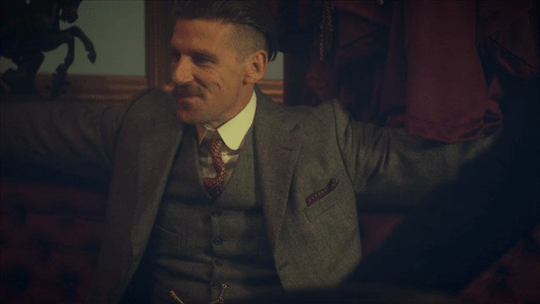
After that first night you crossed the line, you and Arthur continued your affair with little guilt from either of you. Yes, he was still technically married to Linda; but emotionally and mentally, he was all yours. To the world, you were his in all possible aspects after that night. Something that soon spread to those in the office as well as those throughout Birmingham, and you are sure, got back to his wife as well.
Not that she could really have treated you any worse than she did before your affair started. If anything, Linda's abuse and vitriol towards you had lessened since your real affair began. She knew she had lost the battle that she had created in her own mind. That much was evident by the locket Arthur bought you with both of your initials on it. It was a promise that when business settled down, when the stock market fallout was done, he would leave Linda and make an honest woman out of you. Assuming she didn't divorce him first. He had contacts who told him she had been trying to find a lawyer for a while.
His family pretty much all knew about the two of you, and most of them were supportive. Tommy especially. Which was no surprise, really, knowing his dislike of Linda and preference towards you. He would often say he was sending Arthur out of town for business only to send the two of you to spend a few days locked in a suite at the Midland Hotel together instead. Polly and Lizzie were a little more critical that you two weren't doing more to hide your affair and keep it out of the office. Both metaphorically and literally.
Arthur's office itself still being one of the main sites of your romps. Even now, as Arthur called you into his office, you couldn't help the smile on your face. Your stride became all the more confident as other employees started to move towards the front door. None of them frankly wanting to hear you two fucking again.
"Yes, Mr. Shelby."
You used your sweetest voice as you walked in and shut the door behind you, not even bothering to throw the lock. If someone walked in, it was their own fault. You and Arthur loved playing cat and mouse at the office. A lopsided grin on his lips and a predatory glint in his eyes as you sashayed over to where he sat. An extra sway in your hips as you undid a couple extra buttons on your blouse. Making sure he would get an eyeful of your breasts and peek at your bra, his favorite mauve silk one, when you bent down over his desk.
He immediately grabbed your hand and pulled you to sit in his lap. His face immediately buried in your neck, sucking and kissing at your throat. You wrapped your arms around his neck and hummed happily. Closing your eyes and focusing on the feeling of his lips on you.
"Apparently, you left some impressive scratch marks on my back a couple nights ago, love. Didn't even bother making up a lie to Linda when she saw them. Just shrugged. Don't fucking care anymore. Love it when you leave your mark on me, darlin’. Can't wait until I can openly tell everyone you're mine."
His fingers playing with the locket around your neck as he daydreamed about fucking you silly in your wedding dress. He had already removed his wedding ring. He only put it on anymore when he went home to Linda. He hated seeing it and knowing that it meant he wasn't married to you. That he still had to deal with her bullshit.
You could already feel his cock hardening beneath your ass. Letting your hips wiggle against him just a little to let him know you could feel it. He growled low in your ear nipping at the spot just below your ear.
"Well, Mr. Shelby, I did just touch up my lipstick, so how about I leave a new mark or two? Maybe here…"
You tilted his head up and to the side, placing a kiss on his neck. Pulling back to see the red lipstick print you left behind.
"... and here…"
This time, you placed a kiss on the other side of his neck. This time, making sure you placed it low enough on his neck to leave lipstick on his collar. Smiling at the way the bright shade popped against the starched white fabric.
You slithered out of his lap onto the floor in front of him. Your body poised between his legs. Keeping your eyes on his as you opened his waistcoat before unbuttoning and unzipping his pants. Opening them enough to expose the crotch of his white boxer shorts. Lowering your head until your lips were hovering just over the tent there.
"... and here."
You couldn't hold back a little giggle when you saw your lipstick print over his cock. Oh yes. This was the perfect little 'fuck you' to Linda. Maybe if you made her mad enough she would just leave on her own already. At this point all three of you knew she was staying merely out of spite.
"Fuck, angel. So good to me. Now quit that Mr. Shelby bullshit. At least until I can call you Mrs. Shelby. Besides you know I love hearing you scream my name when we fuck."
You raised up on your knees and drug your hands up over his muscular thighs onto his abdomen. Pulling at his suspenders as you tugged his head down to meet your lips. Nipping at his bottom lip before pulling away just far enough to whisper against his skin. His mustache tickling you lightly as you spoke.
"I want to make you scream my name right now, Arthur. You can make me scream later tonight."
Placing one more kiss on his lips, you pulled away and started working to undo his suspenders from his pants. Wiggling your behind excitedly once you had them undone and could start pulling his pants and boxers down to his knees. A smirk on his face at how exuberant you were to suck him off. He would happily return the favor later.
His cock springing free of it's confines as you settled back down onto your heels. Smiling up at him as you began peppering his inner thighs with lipstick tinted kisses. An almost lovesick look in Arthur's eyes as he watched you. His sweet little angel could be oh so devilish.
“Fuck, love. I can tell you right now I'm not gonna last long. Look so fucking pretty on your knees for me.”
With your most innocent eyes you started to kitten lick the tip of his cock. Lapping at it several times before licking your lips and fluttering your lashes at him. Humming to yourself like he was the most delicious treat you had ever tasted. Thoroughly pleased with your work when you opened your eyes and saw Arthur's mouth hanging open looking totally hypnotized. The lanky gangster may be feared by most of Birmingham, but you had him wrapped around your little finger.
“Love you, Arthur”
“Love you too, sw– ohhhhh”
Before Arthur could finish his sentence you lowered your head and took his cock as deep as you could. His words halting and giving way to needy groan. His head falling back and his eyes closing as you started to shallowly bob up and down on his shaft. Keeping your suction consistent until you decided to pull all the way off his cock with a loud pop.
You began to suckle on the head of his cock as you brought one hand up to stroke his hard length. Purposely licking over his slit and tasting his precum on your tongue. You loved getting a taste of what was now reserved just for you. Purring as you swirled your tongue around his ridge. Letting your saliva drip down his shaft and onto his balls.
Turning to look at the clock over your shoulder quickly while you moved to massage his balls, you realized just how soon Tommy was due to be back in the office. You needed to work fast if you wanted to finish Arthur off before you were inevitably interrupted. A wicked little plan forming in your mind.
Smiling sweetly up at him, you placed open mouth sucking kisses up and down his throbbing length. Your fingers nimbly working to open your blouse even more to completely reveal your chest. Your eyes locked with Arthur's as you pulled the cups of your bra down and let your breasts spill free.
After leaning over and spitting on the tip, you started stroking his cock with both hands. Twisting them in opposite directions on your upstroke. Making sure his cock was thoroughly soaked.
Once you were satisfied you suckled on his swollen head once more. Sucking as hard as you could while your tongue flicked at his frenulum. Pulling off of his cock after earning a shallow buck from Arthur's hips. You knew he was getting close.
Bracing yourself on his strong thighs, you scooted as close to the chair as you could. Letting the head of Arthur's cock rub against your chest. Painting a dribble of precum right next to the locket that bore both of your initials.
Arthur's eyebrow quirked up in question of what you were up to. His curiosity growing when you moved the locket over your shoulder so it was out of the way and brought your hands to your breasts and started toying with your nipples. Spitting onto his cock again as you positioned his manhood between your tits and squeezed them together.
Slowly starting to move up and down you smiled deviously as you saw the light bulb click on in Arthur's brain, finally realizing that you wanted him to fuck your tits. Excitedly he brushed his hands over your cheeks and down onto your shoulders as he gently started to thrust his hips.
“Oh, such a naughty mind you have, lovey. Gonna be wearing my cum the rest of the day.”
“Maybe that's what I want. I marked you, now I want you to mark me, Arthur.”
The visual of his cock squeezed between your beautiful breasts was quickly pushing Arthur to the edge. His thrusts growing faster and harder by the second. His teeth gritting together and a growl coming from deep in his chest when you stuck out your tongue so you could lick at the tip of his cock when it peaked up between your breasts.
His breathing started to fall in heavy shaky blows as he struggled to keep any sense of composure. He looked truly wrecked as you gazed up at him through your lashes. His brown hair falling forward over his face, his mouth hanging open, and desperately trying to keep his eyes on the erotic sight of you before him.
“Oh, fuck love, gonna cum! So fuckin’ good to me. Feels so fuckin’ good! Keep your tongue out darlin’. Here it comes!”
A deep growl and a moan falling from Arthur's lips as his hips stuttered and his fingers dug into your shoulders so hard they were sure to leave bruises. His cock twitching as his cum erupted onto your chest, neck, and chin. The warmth of his thick white spend making you shiver against the cool air in the office.
You couldn't help but giggle at Arthur as he fell back exhausted into his chair. Desperately trying to catch his breath. Leaning forward and placing a few more kitten licks on his softening cock and his thighs before pulling up and refastening his boxers, and lovingly caressing his thighs. Comforting your contented lover.
Suddenly, the door quickly swung open and in stepped Arthur's brother, Tommy. He, in particular, seemed to have a knack at knowing the worst possible times to appear. Startling both you and poor Arthur out of his post-orgasm haze. Arthur immediately moved to sit up and pretend you hadn't both been caught.
As soon as he saw you on your knees and his brother's pants undone, Tommy essentially knew what he had walked in on. He was relieved to see that at least it appeared he missed the main event. He plucked the cigarette from between his lips, addressing both of you nonchalantly before leaving just as quickly as he had entered. His face was unchanged the entire time.
“Clean up. Both of you. Family meeting in five minutes.”
Your cheeks had turned beet red in embarrassment. Unsure of whether Tommy had been able to see your bare breasts or that your chest and neck were coated in Arthur's cum. Suddenly second guessing your decision not to lock the office door after all.
Arthur pulled you up into his lap and started cleaning you up with his handkerchief and laughing at your sheepish expression. He placed a sweet kiss on your lips as he finished wiping you down. He fixed your bra and straightened out your locket, kissing you more deeply before reassuring you his brother wouldn't give you trouble.
“Don't worry, sweetheart. If Tom says anything, I'll just say that he hasn't paid me enough to buy you a proper pearl necklace, so we improvised.”
You threw your head down into his neck and burrowed into his arms even farther in embarrassment. Arthur's arms holding onto you as tight as he could, laughing even louder when he felt you starting to giggle too and placing kisses into your hair. Both of you were aware that even if Tommy didn’t say anything at the very least, John would enjoy giving both of you hell.
--------------------------------
Back to Kinktober 2023 masterlist
Back to main masterlist
#arthur shelby#arthur shelby x reader#arthur shelby x y/n#arthur shelby x you#arthur shelby smut#peaky blinders#arthur shelby x oc#peaky fucking blinders#peaky fookin blinders#peaky blinders smut#peaky blinders imagine#arthur shelby imagine#kinktober 2023#kinktober#paul anderson#linda shelby#peaky blinders x reader#arthur shelby fanfic#arthur shelby fluff#peaky blinders fanfic#peaky blinders fluff#peaky blinders x y/n#peaky blinders x you#peaky blinder fanfic#peaky blinder imagine#arthur shelby fic#peaky blinder smut#arthur and linda shelby#peaky blinders fanfiction#arthur shelby fanfiction
209 notes
·
View notes
Photo
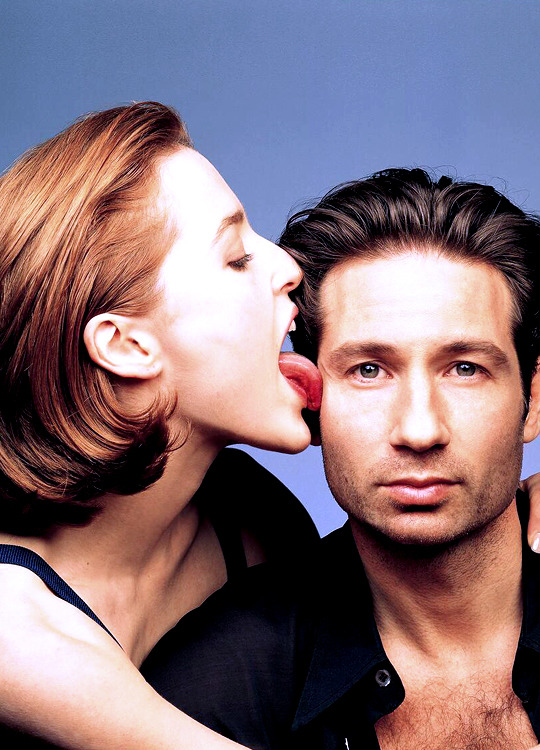
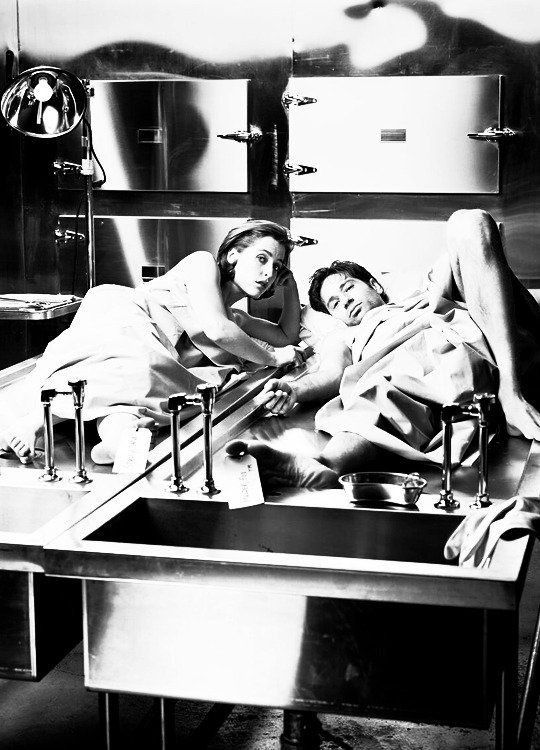

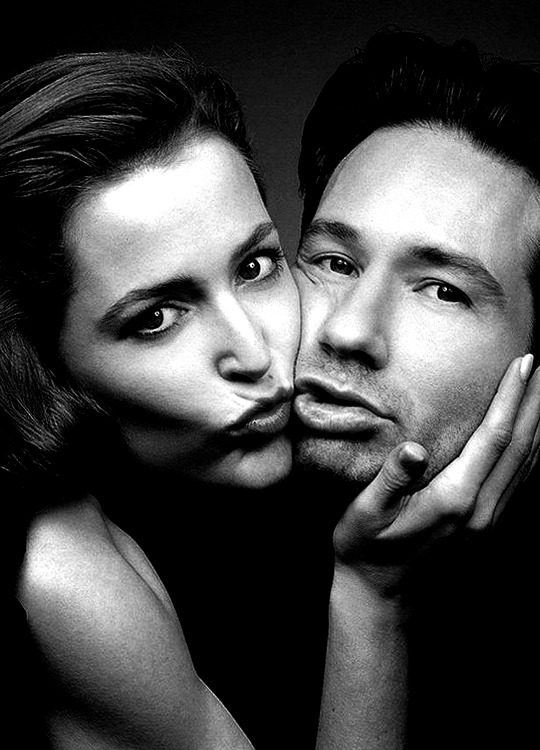
DAVID DUCHOVNY & GILLIAN ANDERSON for US WEEKLY (1997)
#*#txfedit#xfilesedit#the x files#txf#david duchovny#gillian anderson#scifiedit#user90s#theninetiesedit#userbbelcher#usermulder#usermills#usercande#tusershay#useralex#linda-darnell#by veronika#edit#cast#photoshoot
3K notes
·
View notes
Photo

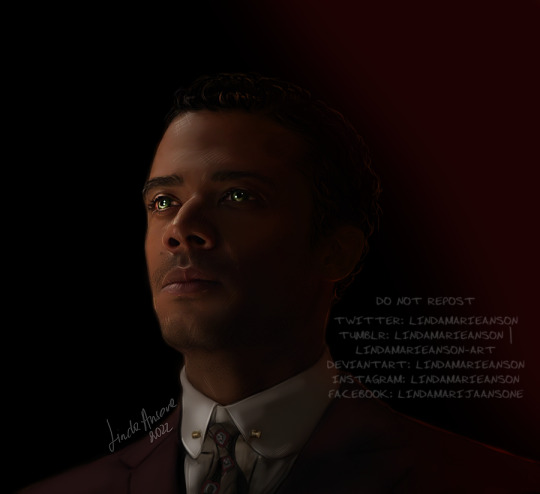
Inktober22 - Day 10 and 11 - Lestat and Louis (I decided to post them together.)
#interview with the vampire#amc interview with the vampire#amc iwtv#lestat de lioncourt#louis de pointe du lac#sam reid#jacob anderson#fanart#artists on tumblr#digital painting#fanart on tumblr#linda marie anson#inktober 2022#inktober#loustat
734 notes
·
View notes
Text
youtube
mamma mia + bob's burgers = comedy ✨
ANYWAYY
#bob's burgers#mamma mia#mamma mia here we go again#gene belcher#linda belcher#tina belcher#louise belcher#bob belcher#jimmy jr#zeke bobs burgers#funny post#funny stuff#donna sheridan#harry bright#bill anderson#sophie sheridan#hilarious#Youtube
19 notes
·
View notes
Text

#vintage#texas#cowboy#cowgirl#salma hayek#penelope cruz#i guess#cindy wolfie#pamela anderson#monica bellucci#linda evangelista#coqeutte#bridgitte bardot#sexy af
18 notes
·
View notes
Text
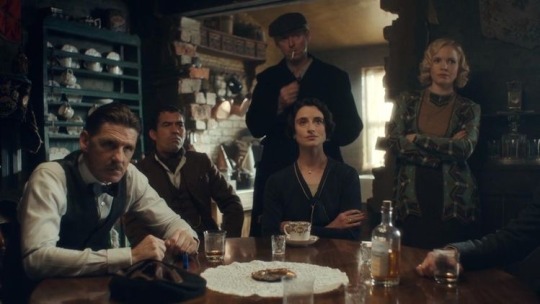
Arthur, Johnny, Charlie, Lizzie and Linda
#arthur shelby#johnny dogs#charlie strong#lizzie stark#linda shelby#peaky blinders#paul anderson#ned dennehy#packy lee#natascha o’keeffe#kate phillips
69 notes
·
View notes
Text

7 notes
·
View notes
Text
What the fuck are they laughing at?
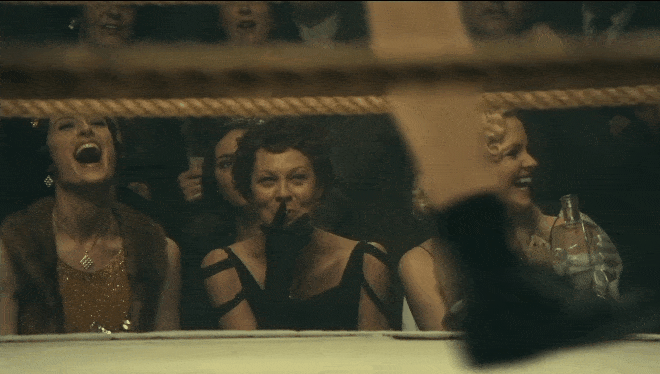
#natasha o'keeffe#cillian murphy#lizzie shelby#lizzie stark#tommy shelby#thomas shelby#tommy x lizzie#peaky blinders#peaky fookin blinders#peaky blinders gif#period series#peaky blinders s4#polly gray#helen mccrory#ada shelby#sophie rundle#arthur shelby#paul anderson#linda shelby#kate phillips#bonnie gold#aberama gold#peaky blinders edit#peaky fucking blinders
205 notes
·
View notes
Text


THEM.
#my thespians#WOMEN#<3#Sophie Okonedo#Ratched#Charlotte Wells#Ondine Duquette#Rosamund Pike#A Private War#Marie Colvin#Gillian Anderson#The Crown#Margaret Thatcher#Mrs. T#Sarah Paulson#Impeachment#American Crime Story#Linda Tripp#tweet from: @evilrelaysp0rt
148 notes
·
View notes
Photo
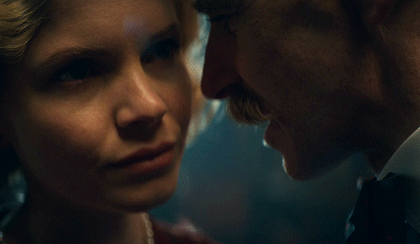
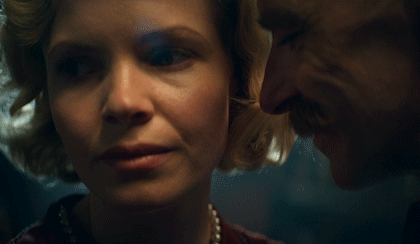




S5.01 - PEAKY BLINDERS
#peaky blinders#peakyblindersedit#peakyblindersgifs#merelsgifs#thomasshelbyltd#peakyblinded#perioddramaedit#usershelby#userkayjay#periodedits#onlyperioddramas#weloveperioddrama#cinemapix#dailyflicks#filmtvcentral#linda shelby#kate phillips#arthur shelby#paul anderson#S5#S5.01#tvfilmsource#fyeahtv#tvedit#tvgifs
191 notes
·
View notes
Photo
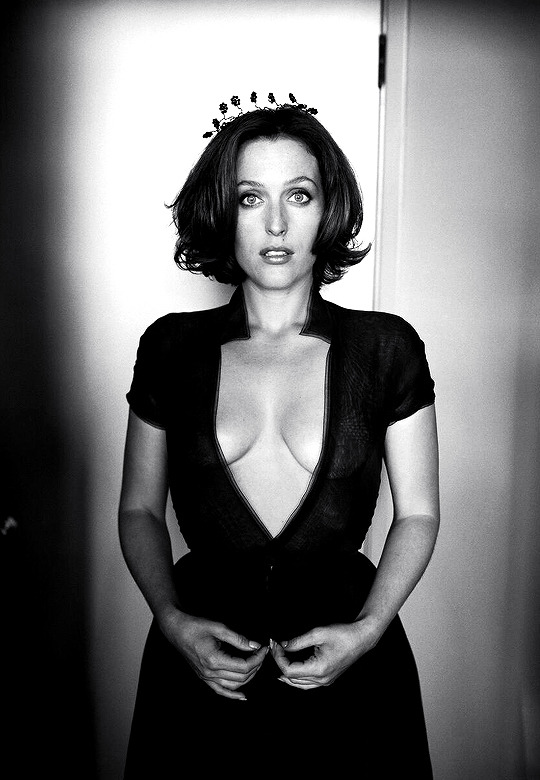
GILLIAN ANDERSON 📷 CHRIS BUCK (2000)
#*#by veronika#gillian anderson#gandersonedit#gillianandersonedit#bwbeautyqueens#flawlessbeautyqueens#thequeensofbeauty#dailywomen#userladiesblr#usermilf#m!lfsource#userbetts#usercande#linda-darnell#usermulder#useralex#userhella#usermills#tusershay#cast#photoshoot#edit
1K notes
·
View notes
Text

the cast of ladies of the 80’s: a divas christmas
#Ladies of the 80’s: A Divas Christmas#Donna Mills#Nicollette Sheridan#Morgan Fairchild#Linda Gray#Loni Anderson#2023#🧼#⛄#lifetime
7 notes
·
View notes
